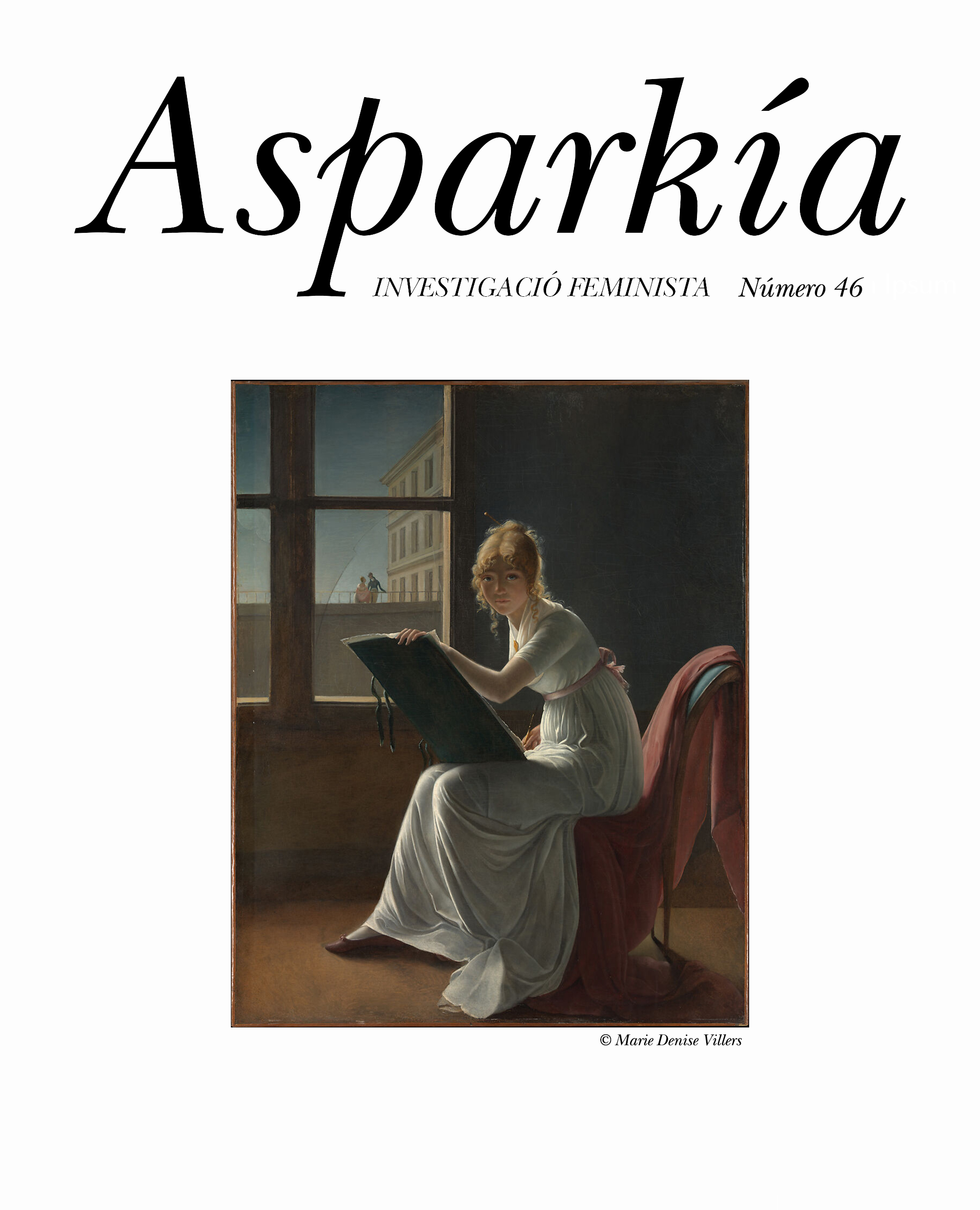Un examen de las perspectivas del profesorado sobre la representación de género en un producto cultural digital –Achieve 3000- y su impacto en el estudiantado de la escuela preparatoria de inglés en la Universidad de Haliç de Turquía
Contenido principal del artículo
Resumen
Este estudio investiga el efecto de los productos culturales digitales en el estudiantado de inglés del programa preparatorio de la Universidad de Haliç desde una perspectiva de género. Se examina el punto de vista del profesorado de inglés del programa preparatorio sobre la función del género en el producto digital de aprendizaje de inglés, Achieve3000. El uso de productos digitales en el aula es una forma de mejorar la participación estudiantil y el aprendizaje del idioma. El trabajo investiga la efectividad de los recursos digitales de aprendizaje para el estudio del idioma y la manera en que representan normas y estereotipos de género. El profesorado de inglés percibe Achieve3000 de manera positiva para el aprendizaje del idioma, aunque existen reservas sobre su efectividad en el desarrollo de habilidades de lectura y en la identificación de necesidades de los estudiantes.
Descargas
Detalles del artículo
Citas
Achieve3000. (n.d.). Reading Intervention Strategies for Accelerated Learning. Mc Graw Hill. Achieve3000. https://www.achieve3000.com/learning-solutions/accelerated-learning [Last consulted: 12/02/2024].
Alkhudiry, Reham. (2022). The Contribution of Vygotsky’s Sociocultural Theory in Mediating L2 Knowledge Co-Construction. Theory and Practice in Language Studies, 12(10), 2117-2123. https://doi.org/10.17507/tpls.1210.19
Aydemir, Sevilay; Öz, Eda, & Erdamar, Gürcü. (2022). Gender in Education: A Systematic Review of the Literature in Turkey. International Journal of Contemporary Educational Research, 9(2), 232-247. https://doi.org/10.33200/ijcer.923247
Borman, Geoffrey D.; Yang, Hyunwoo; Audrain, R. Lennon, & Park, So Jung. (2023). The District-Wide Effectiveness of the Achieve3000 Program: A Quasi-Experimental Study. Journal of Education for Students Placed at Risk (JESPAR), 1-23. https://doi.org/10.1080/10824669.2023.2218093
Canals-Botines, Mireia. (2022). Women’s Voices in Digital Storytelling During the Pandemic: A Case Study in English Literature Classes. Sciendo, 21(1), 119-130. https://doi.org/10.2478/genst-2023-0008
Caner, Asena; Guven, Cahit; Okten, Cagla, & Sakalli, Seyit Omer. (2016). Gender Roles and the Education Gender Gap in Turkey. Social Indicators Research, 129, 1231-1254. https://doi.org/10.1007/s11205-015-1163-7
Carter, Ronald. (2003). Language Awareness. ELT Journal, 57(1).
DataReportal. (2024, January). Global digital overview. https://datareportal.com/global-digital-overview [Last consulted: 21/02/2024].
Doğan-Südaş, Hatice; Kara, Ali, & Karaca, Emre. (2023). Effects of Gamified Mobile Apps on Purchase Intentions and Word-of-Mouth Engagement: Implications for Sustainability Behavior. Marketing Innovation and Consumer Values in Sustainable Business Strategy, 15(13), 1-17. https://doi.org/10.3390/su151310506
Drache, Daniel, & Froese, Marc D. (2006). Globalisation, World Trade and the Cultural Commons: Identity, Citizenship and Pluralism. Routledge, 11(3), 361-382. https://doi.org/10.1080/13563460600840217
Filatova, Olga A. (2015). Cultural Attributes of Students to Make Student-Centered Approach Successful. International Journal of Languages, Literature and Linguistics, 1(1), 20-24. https://doi.org/10.7763/IJLLL.2015.V1.5
Guodong, Sun. (2023). The Effectiveness of Achieve3000 Integrated Model on English Reading Performance en Proceedings of the International Conference on Education, Knowledge and Information Management (ICEKIM 2023) (pp. 1595-1600). Atlantis Press. https://doi.org/10.2991/978-94-6463-172-2_176
Karume, Simon M., & Masese, Nelson B. (2018). Software and User Based Factors Influencing Social Software Learnability. International Journal of Science and Research (IJSR), 7(1), 628-633.
Kerkhoven, Anne H.; Russo, Pedro; Land-Zandstra, Anne M.; Saxena, Aayush, & Rodenburg, Frans J. (2016). Gender Stereotypes in Science Education Resources: A Visual Content Analysis. PLoS One, 11(11), 1-13. https://doi.org/10.1371/journal.pone.0165037
Levy, Holli M. (2008). Meeting the Needs of All Students Through Differentiated Instruction: Helping Every Child Reach and Exceed Standards. The Clearing House (Heldref), 81(4), 161-164. https://doi.org/10.3200/TCHS.81.4.161-164
Luthar, Breda, & Kropivnik, Samo. (2011). Class, Cultural Capital, and the Mobile Phone. Sociologicy Casopis-Czech Sociological Review, 47(6), 1091-1118. https://doi.org/10.13060/00380288.2011.47.6.01
Moradi, Hamzeh, & Chen, Hefang. (2019). Digital Storytelling in Language Education. Systems Research and Behavioral Science, 9(12), 147. https://doi.org/10.3390/bs9120147
Mustapha, Abolaji Samuel. (2012). Dynamics of Gender Representations in Learning Materials and Gender Equality. Hipatia Press, 1(3), 243-270. https://doi.org/10.4471/generos.2012.12
Nagasundram, Partibaraaj; Swanto, Suyansah; Soekarno, Megawati, & Akmam Din, Wardatul. (2021). The Role of Gender on ESL Learners’ Perception in English Language Learning: A Systematic Review. International Journal of Education, Psychology and Counselling, 6(43), 235-348. https://doi.org/10.35631/IJEPC.643019
Rybakova, Marina V. (2021). Digital Educational Environment as a Factor of Foreign Language Competences Development. Pnojournal, 41(1), 232-248. https://doi.org/10.32744/pse.2021.1.16
Şahini, Abdullah, & Özenç, Emine Gül. (2021). The Use of Educational Software in Teaching Initial Reading and Writing. International Journal of Progressive Education, 17(4), 373-389. https://doi.org/10.29329/ijpe.2021.366.23
Saraeva, Natalya. (2022). Digital Tools in Foreign Language Education. Summa, 640-642. https://doi.org/10.1109/SUMMA57301.2022.9974148
Schlosser, Ann E. (2006). Learning Through Virtual Product Experience: The Role of Imagery on True Versus False Memories. Journal of Consumer Research, 33(3), 377-383. https://doi.org/10.1086/508522
Shadiev, Rustam, & Wang, Xun. (2022). A Review of Research on Technology-Supported Language Learning and 21st Century Skills. Frontiers in Psychology, 13, 1-19. https://doi.org/10.3389/fpsyg.2022.897689
Sheldon, Jane P. (2004). Gender Stereotypes in Educational Software for Young Children. Sex Roles. A Journal of Research, 51(7/8), 433-444. https://doi.org/10.1023/B:SERS.0000049232.90715.d9
Statista. (2024, January 31). Digital population worldwide. https://www.statista.com/statistics/617136/digital-population-worldwide/ [Last Consulted: 21/02/2024].
Toraman, Çetin, & Özen, Fatmanur. (2019). An Investigation of the Effectiveness of the Gender Equality Course with a Specific Focus on Faculties of Education. Educational Policy Analysis and Strategic Research, 14(2), 6-28. https://doi.org/10.29329/epasr.2019.201.1
Torres, D. Diego. (2015). Achieve3000 Impacts on Student Reading and State of Texas Assessments of Academic Readiness End-of-Course English I, English II, and Biology Exams for the 2014-2015 academic year. Lakewood, NJ: Achieve3000. https://www.achieve3000.com/impact/research/


